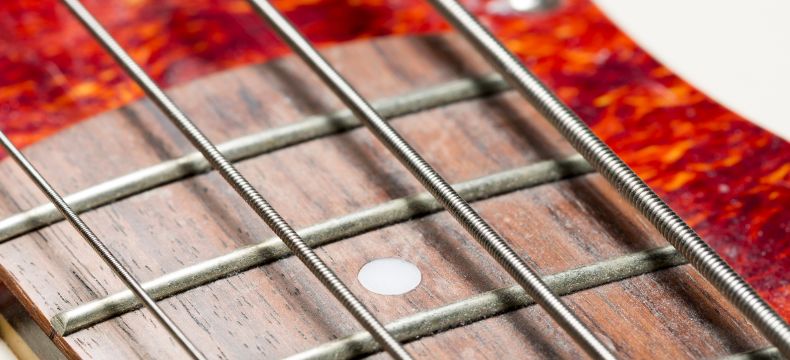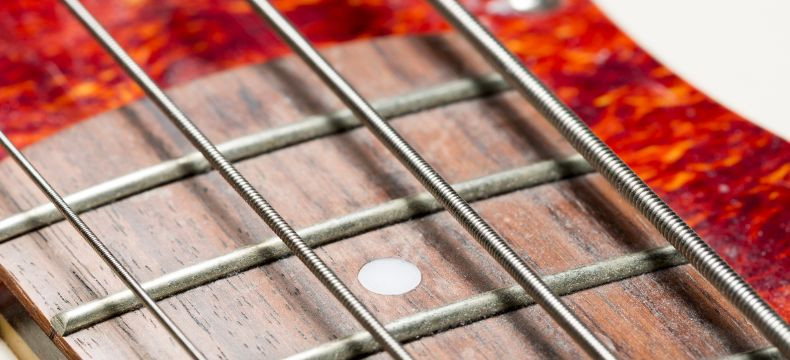
Explore Electric Bass String Materials Beyond Nickel
When it comes to crafting the perfect sound for your electric bass, the choice of strings is paramount. For decades, nickel has been a go-to material for many bassists, providing a balanced tone that works in a variety of genres. But did you know that there’s a world of electric bass string materials that can open up new sonic possibilities? If you’re tired of the usual nickel options and want to explore something fresh, you’ve come to the right place!
In this post, we’ll delve into a variety of electric bass string materials, their unique sound characteristics, and how they can elevate your playing. By the end, you’ll be armed with knowledge that will help you make informed choices when selecting your strings. So, whether you play rock, jazz, or funk, stick around to discover the alternatives that could enhance your bass experience.
Table of Contents
- 1. The Importance of String Materials
- 2. Stainless Steel Bass Strings
- 3. Phosphor Bronze Bass Strings
- 4. Cobalt Bass Strings
- 5. 24K Gold Bass Strings
- 6. Other Specialty Materials
- 7. Making Your Choice
- 8. Conclusion
1. The Importance of String Materials
The materials used in electric bass strings can significantly affect your tone, playability, and even longevity of the strings. Each material has its unique properties that influence durability, brightness, warmth, and feel. Understanding these distinctions can not only help improve your sound but also tailor your gear to match your unique playing style.
2. Stainless Steel Bass Strings
Stainless steel bass strings are known for their bright and cutting tone. They’re a popular choice among metal, rock, and jazz bassists due to their snappy attack and clarity. The durability of stainless steel means they resist corrosion exceptionally well, providing extended playability without loss of brightness.
Why Choose Stainless Steel?
- Excellent projection
- Bright sound ideal for slapping
- Long-lasting and corrosion-resistant
3. Phosphor Bronze Bass Strings
Phosphor bronze bass strings blend copper with tin and a small percentage of phosphor, resulting in a warm, full-bodied tone. They produce a rich, mellow sound that’s perfect for genres like jazz and blues. The unique alloy allows for an increase in harmonic content, giving your music a distinct character for both acoustic and electric basses.
Beyond just tonal properties, these strings also maintain their brightness longer than traditional bronze strings, making them a great investment.
Pros of Phosphor Bronze
- Warm and rich sound
- Extended lifespan and stability
- Great for fingerstyle techniques
4. Cobalt Bass Strings
Cobalt bass strings are a relatively newer entry into the world of bass strings, offering a unique magnetic property that enhances the instrument's tonal response. They provide a smooth feel, enhanced high-end clarity, and a warm low-end, making them versatile for numerous music styles.
If you’re looking to explore a string that combines the best of both worlds, cobalt could be your answer.
Features of Cobalt Strings
- Enhanced mid-range presence
- Great sustain and dynamics
- Smooth feel, ideal for those long gigs
5. 24K Gold Bass Strings
Yes that's right, 24K Gold Bass Strings exist! They are quite unique and sound like a million bucks. But surprisingly they don't cost a million bucks. No need to turn your tone knob down these have a robust low to mid frequency strength.
- Smooth low/mid-range boom
- Soft attack
- Extended lifespan
- Fun to answer the question "What strings are those?" 24K GOLD!
6. Other Specialty Materials
Beyond stainless steel, phosphor bronze, and cobalt, other specialty materials are gaining traction in the bass guitar community:
- Pure Nickel: If you have a skin allergy to other materials, Pure Nickel can be the ticket. It has a warmer tone than Nickel Plating alone.
- Alloy 52: Need higher output and sizzle? Then this is your string. Similar to having your amp go to 11!
- Monel Nickel: A choice for players seeking the old school sound. Not bright, with a vintage appeal.
- Quantum Nickel: This material is what DR String refers to for their Pure Blues line and the sound blends the qualities of nickel and stainless.
- Tape Wound: Not a metal, but a material nonetheless. Tape wound strings are smooth to the touch, a prefered string by jazz players.
7. Making Your Choice
Choosing the right bass strings depends heavily on your playing style and the genres you prefer. Here are some tips to help guide your selection:
- Consider the genre: Rock vs. Jazz can dictate your material choice.
- Think about your tone preference: Bright and punchy vs. warm and smooth.
- Test different brands: Each manufacturer can have subtle variances even in the same material.
Ultimately, it’s about experimentation and finding what works for you. Don’t hesitate to switch it up and explore these various string materials!
8. Conclusion
In conclusion, electric bass string materials beyond nickel offer a myriad of sonic possibilities that can redefine your playing experience. Each material has its own unique qualities that can complement different styles and preferences. Whether you choose stainless steel for its brightness, phosphor bronze for richness, or venture into the realm of cobalt and special alloys, each string allows you to express yourself uniquely.
Now that you're armed with knowledge about electric bass string materials, it’s time to hit the shop and try something new. Don't be afraid to mix and match until you find your perfect sound!
Call to Action: Ready to upgrade your sound? Check out our collection of electric bass strings and find the perfect match for your playing style!






